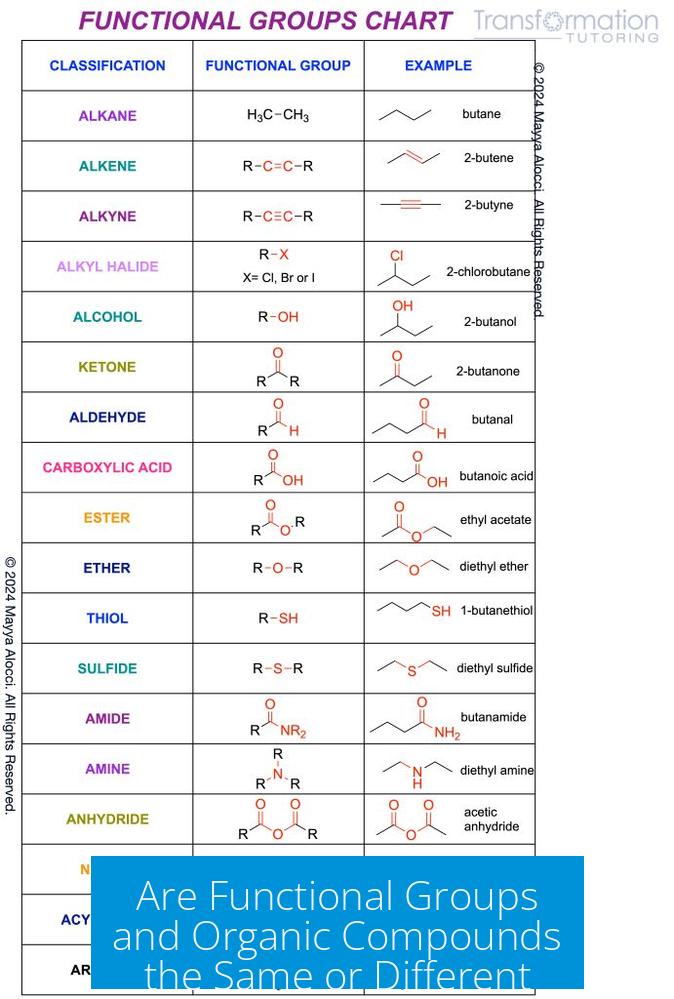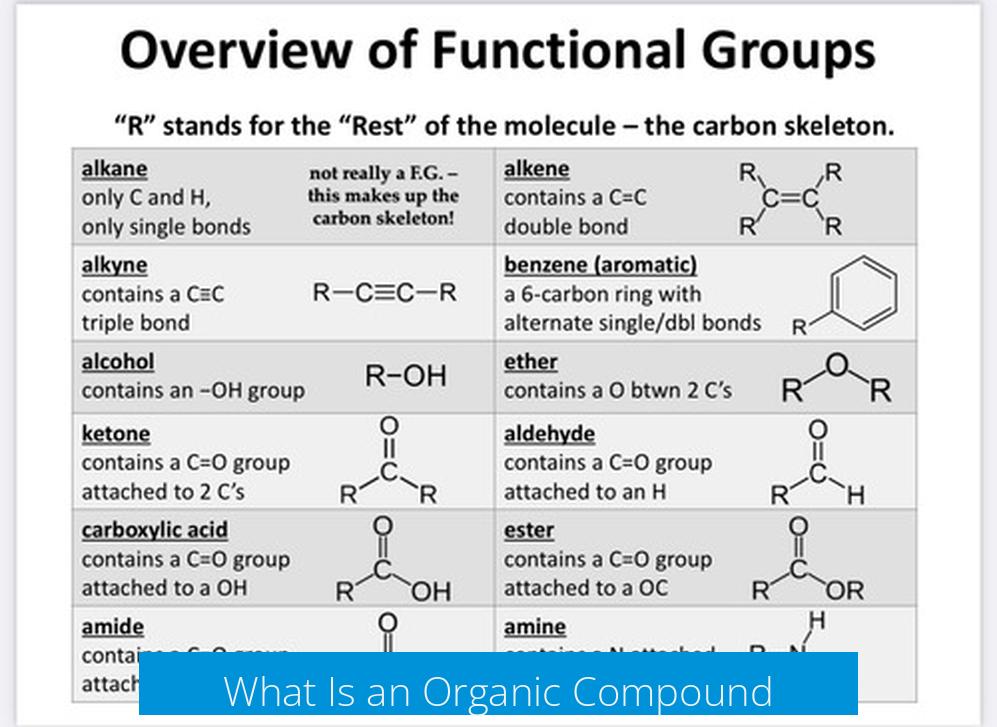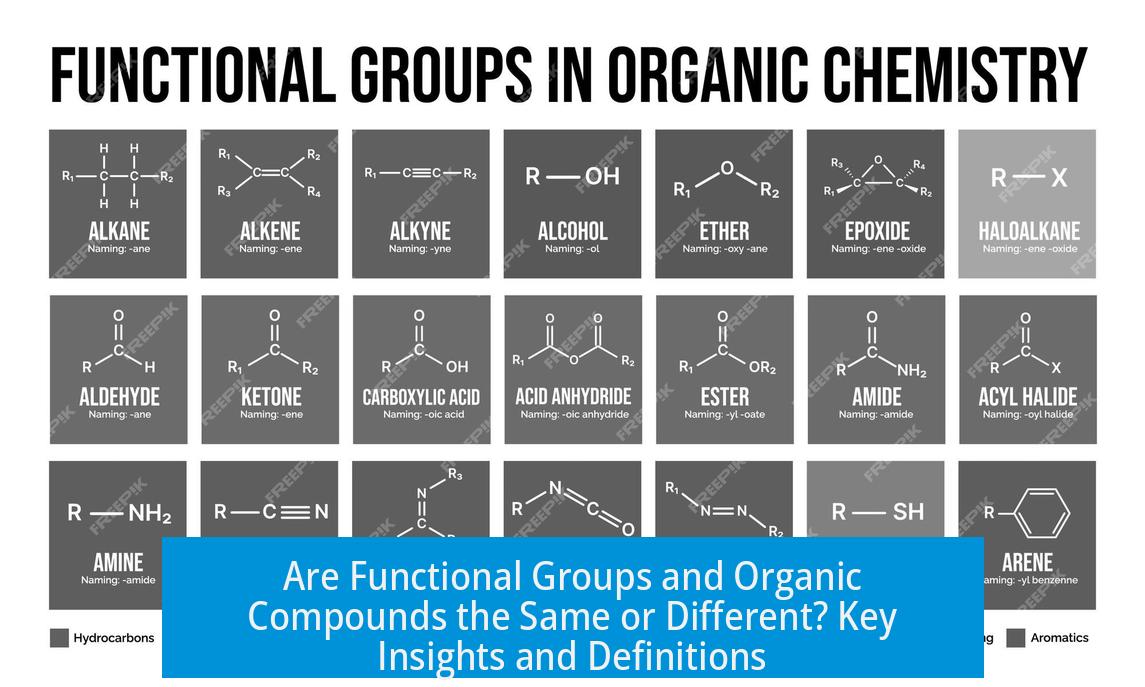Are Functional Groups and Organic Compounds the Same or Different?

No, functional groups and organic compounds are not the same. An organic compound is a complete chemical substance, while a functional group is a specific part or fragment within that compound, defining its chemical behavior.
What Is an Organic Compound?

Organic compounds are molecules mainly composed of carbon atoms bonded with hydrogen, oxygen, nitrogen, and other elements. These compounds include a variety of substances such as alcohols, acids, and hydrocarbons.
Each organic compound can have one or more functional groups. These groups determine the compound’s chemical properties and reactivity.
What Is a Functional Group?
A functional group is a distinct arrangement of atoms within a molecule responsible for the characteristic reactions of that molecule. It is a subunit of an organic compound.
Examples include:
- Hydroxyl group (–OH), defining alcohols
- Carboxyl group (–COOH), defining carboxylic acids
- Amino group (–NH2), defining amines
Alcohol: Both Functional Group and Compound?
The term “alcohol” illustrates the difference clearly.
- Functional Group: The alcohol group (hydroxyl, –OH) is a functional group.
- Organic Compound: Compounds containing this group are often called alcohols. For example, ethanol, commonly known as drinking alcohol, is an organic compound with an alcohol functional group.
Thus, an alcohol functional group is a piece of the molecule, while an alcohol compound is the entire molecule containing this group.
Naming Conventions Based on Functional Groups
Scientists often name or classify organic compounds according to their dominant functional group, especially if only one is present or important.
For example, chemists refer to all compounds bearing a hydroxyl group collectively as “alcohols.”
However, for complex molecules with multiple functional groups, naming by a single group becomes inadequate.
Variability in Language and Classification
The meaning of terms like “alcohol” differs between chemists and the general public. Non-chemists usually mean ethanol, whereas chemists use “alcohol” to denote any compound containing the –OH group.
This difference highlights the complexity and nuance in proper chemical classification.
Key Takeaways
- Functional groups are specific atom groups within organic compounds.
- Organic compounds are whole molecules that may contain one or more functional groups.
- Naming often reflects dominant functional groups but varies with compound complexity.
- Common language terms may differ from scientific definitions.





Leave a Comment